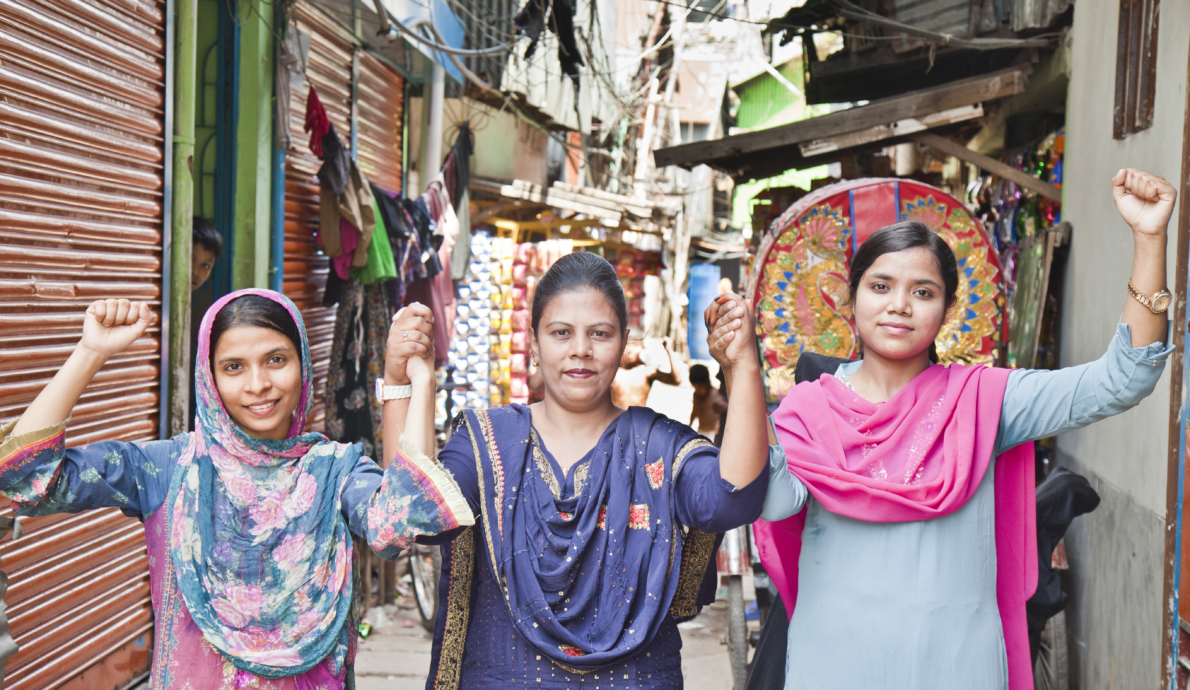In this three-part series, Counterpart International’s Gender Working Group discusses the importance of a focus on gender in implementing programs. Read the first and second parts of the series.
Q: What do you think is the most misunderstood aspect of gender and women’s role in development?
Farangis: Often gender is misunderstood as being the promotion of women only. However, nowadays, gender issues focus on women, and their role in society, access to and control over resources, division of labor, interests and needs. Although women’s role in development has increased remarkably within the past few decades, women remain vastly under-represented at the highest organizational levels.
Gozel: In conservative societies, people don’t understand that women have the same potential to study and work and contribute to the community at the same level as men. I think education is a key to development and gender equality. My favorite saying about educating women and girls is “You educate a man; you educate a man. You educate a woman; you educate a generation.”
Kimberly: I think people commonly equate gender with women and girls, and women’s role in development as equal participation in workshops and other activities. But as mentioned earlier, gender means looking at men, women, boys, and girls in relation to each other, and gender issues are not only women’s issues. Female empowerment requires the involvement of men and boys to break down the barriers that prevent the full participation of women and girls in their societies, beyond the activities we sponsor.
Mouna: Gender is often misunderstood as being the promotion of women only. However, gender issues focus not only on women, but on the relationship between men and women, their roles, access to and control over resources, and division of labor and needs.
Oriane: I think the most misunderstood aspect of gender is that it’s only about women. Gender is about men and women, and how they interact. Gender is about both men and women’s rights.
Q: Looking forward to the next 50 years, what is your hope for what needs to be accomplished? What do you want the world to look like?
Farangis: Looking forward to the next 50 years, I sincerely hope we will be able to change mindsets and attitudes of both men and women, with men viewing women as equal partners and women believing in their own abilities as leaders, decision-makers, and equals with their male counterparts. We need more women in power regardless of what country they live in. I want children to grow up open-minded about the future, supportive of each other, and supportive of one another’s rights as equals in a progressive society. Let’s dedicate ourselves to pursuing equal opportunities for women on International Women’s Day and every day through our programs as well as our attitudes and actions.
Kimberly: In the next 50 years, I’d like to see more international organizations and local communities viewing gender equality and women’s issues just as human rights and global issues—a world in which sexual and gender-based violence and discrimination are not tolerated.
Mouna: I want to see a world where there is less poverty, where girls and boys have the same access to education and are empowered to change their community. A shared culture of inclusion, understanding, and tolerance.
Oriane: Looking 50 years ahead… we will be able to see the value of both men and women and how we can learn from each other. Men and women, boys and girls, young and old, all have a place in our societies, and have an important role to play within our family and community structures, and I hope this will be part of our future.




